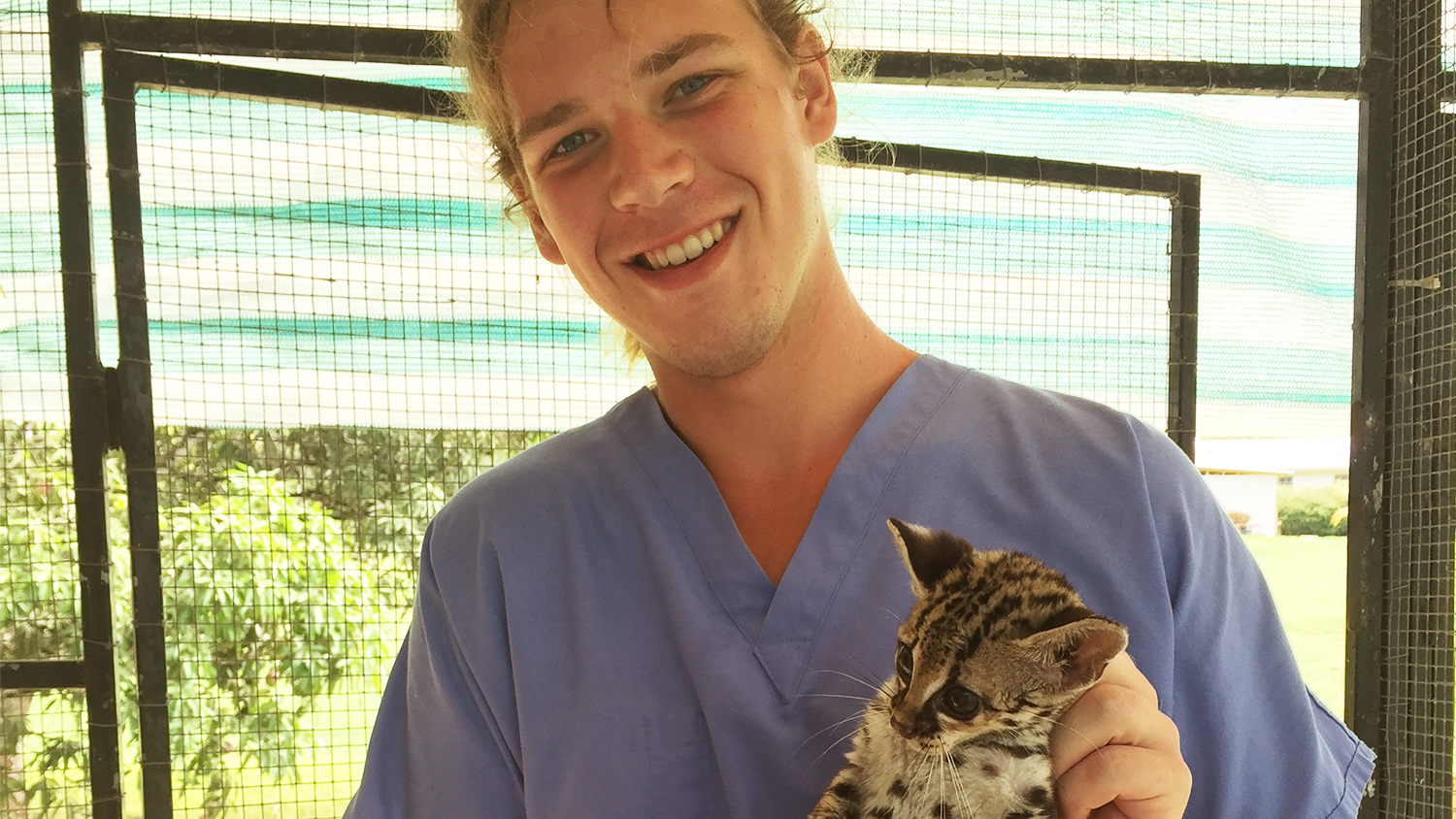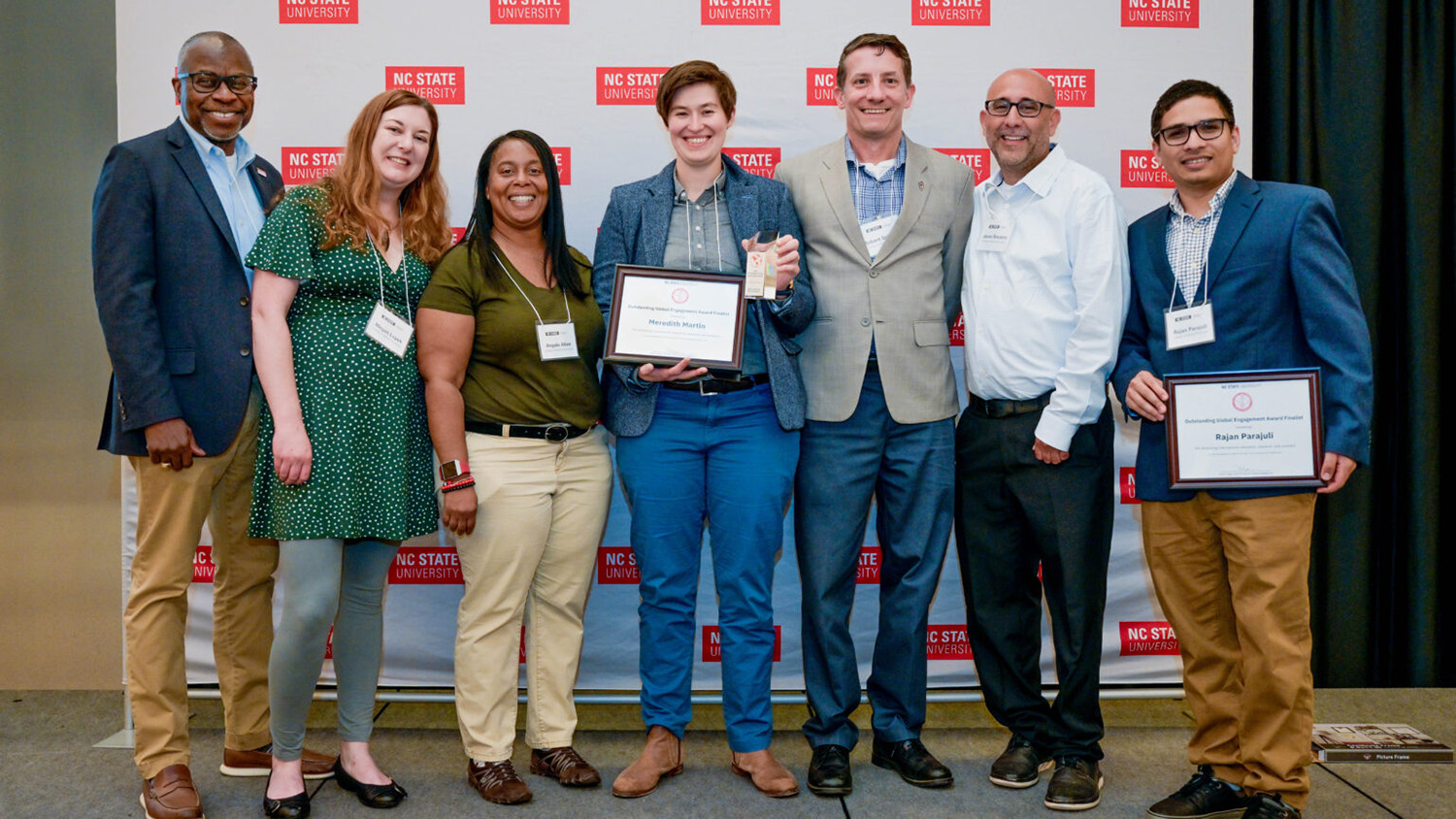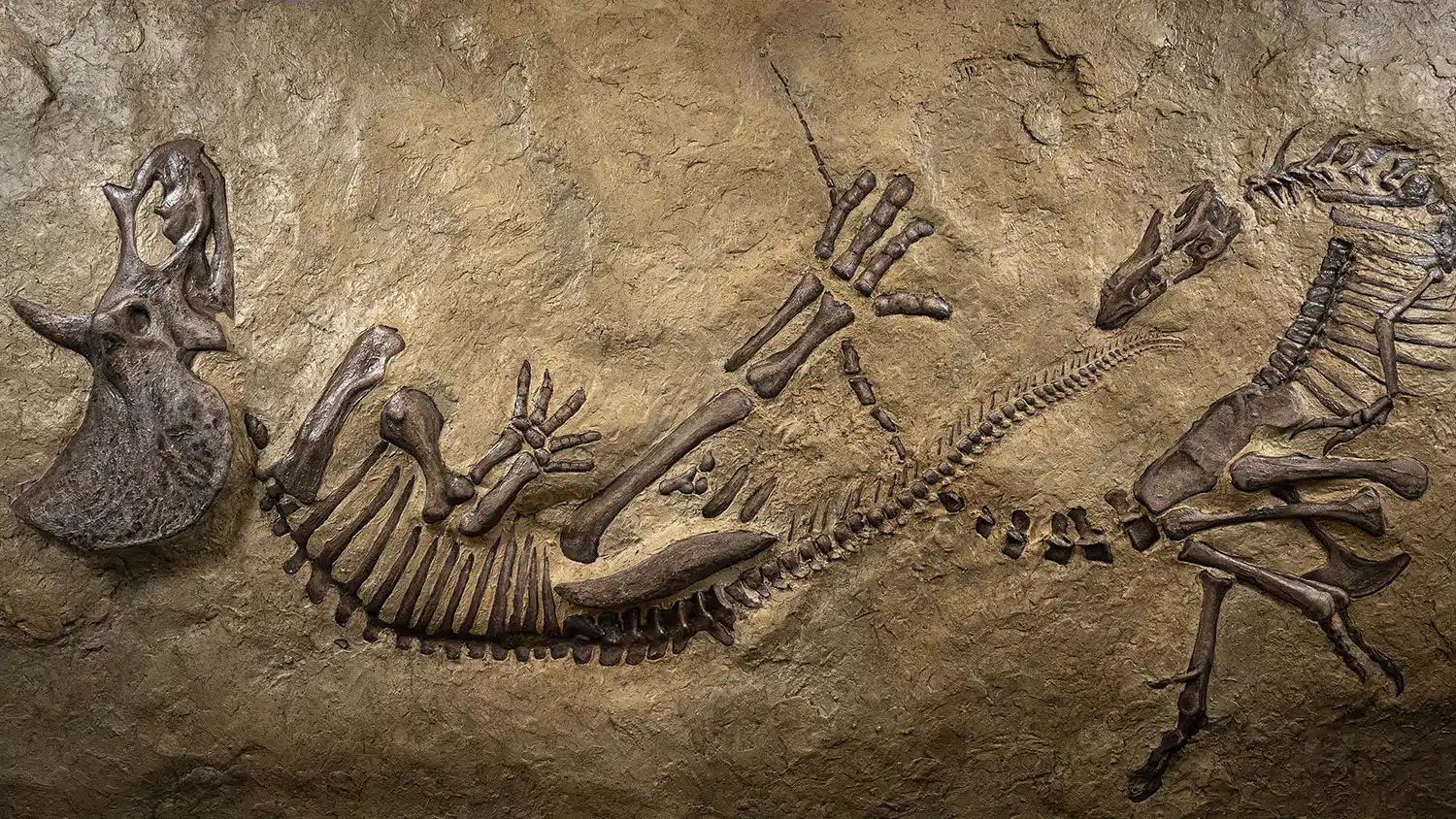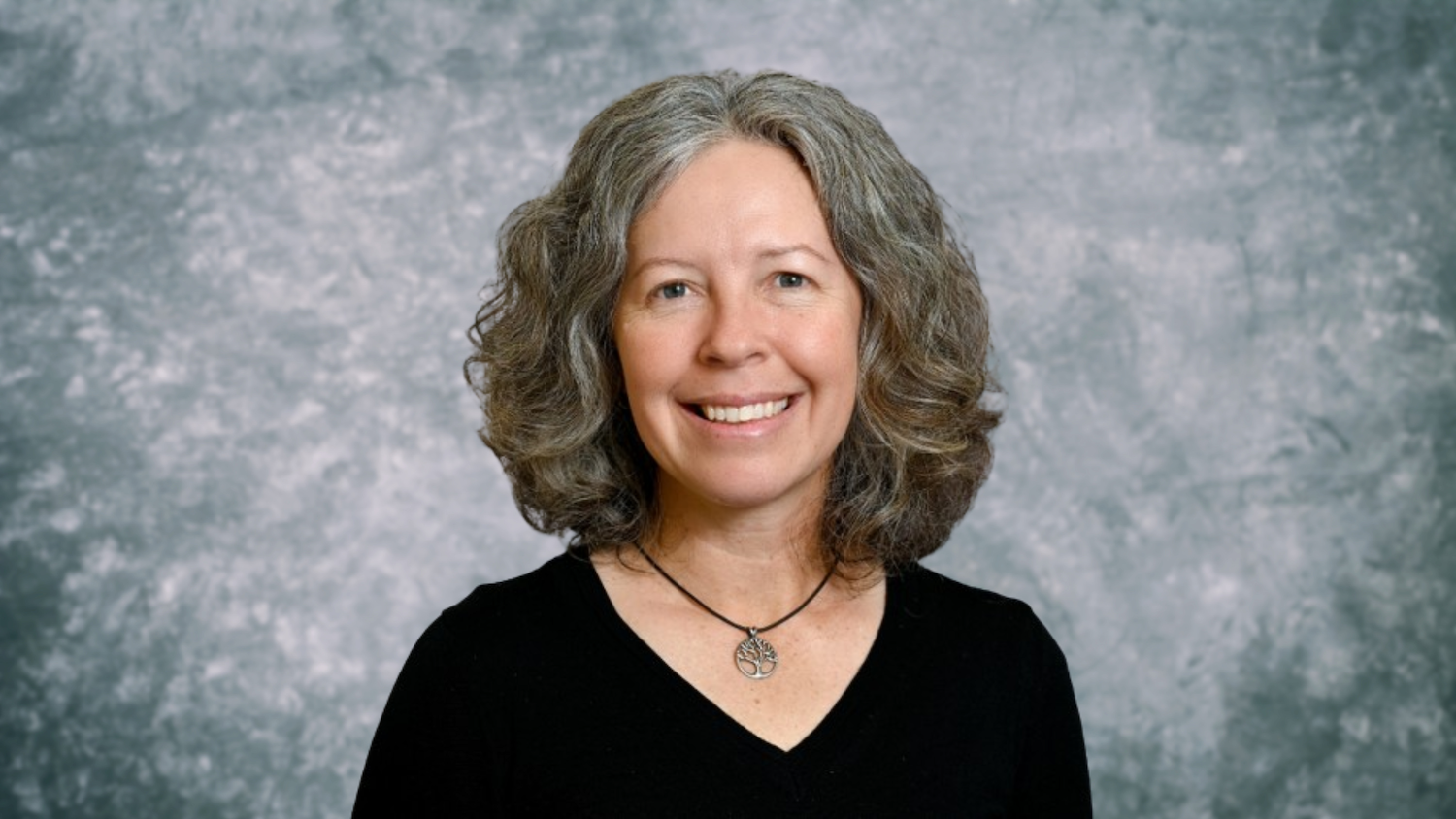Student Spotlight: Clay Tuttle

Environmental Sciences and Zoology double major Clay Tuttle interned at the Belize Wildlife and Referral Clinic (BWRC) as a veterinary assistant. During his time in Belize, he saw a wide range of endemic species, including boa constrictors, margays, ocelots, jaguarundi, crocodiles, furrowed wood turtles, scarlet macaws, several small parrots, coatimundi, raccoon, hawks and grey foxes. Back at NC State, Tuttle splits his time as the Phi Sigma Pi National Honor Fraternity Leadership in Action Facilitator, Epsilon Eta Environmental Honor Fraternity VP of Membership Development and the Merit Badge College at NC State President and Founder. He’s also an active member of the Turtle Rescue Team, Pack Abroad Ambassador and Zoology Club. Check out Tuttle’s hands-on experiences abroad.
How did this experience impact you?
After my internship, I was able to compare several facets of wildlife medicine to other more structured forms of animal medicine. I am teetering between pursuing wildlife or zoological medicine and this internship has given me insight into one of those. Also, the people I met and the connections I’ve made will stick with me.
How has this opportunity or experience prepared you for your future career?
As I am deciding which field of animal medicine I wish to pursue, I can think back on my time in Belize. I learned about animal husbandry, ornithological orthopedic surgery techniques, phlebotomy readings, animal restraint, personal communication skills, wildlife field medicine and professionalism in the workspace. All of these things will help me in both my studies and in practice in the future.
What did you learn about yourself during your experience?
I learned how to test my limits and how to put myself out of my comfort zone. I took responsibility for caring for wildlife through all hours of the day in night. Specifically, I hand raised two coatimundi brothers whose mother had been killed by hunters.
Would you recommend this experience to other students?
Yes! The BWRC is a great way to get real hands-on wildlife medicine experience. Also, you can explore the country a little and get a feel for the local culture. Belize is an English-speaking country, so navigating new areas is easy.
Any advice for incoming students?
Find the niche you fit in and own it. Don’t be intimidated by professors or asking questions in class. It’s okay not to know exactly what you want to do when in college. Enjoy your time and diversify your experiences.
Have you completed any other hands-on experiences?
In the summer of 2016, I studied abroad in Tanzania with the School for Field Studies at the Center for Wildlife Management Studies. I spent 11 weeks in rural Tanzania conducting wildlife observations, ecological surveys and environmental impact assessments in several national parks, protected areas and rural communities.


